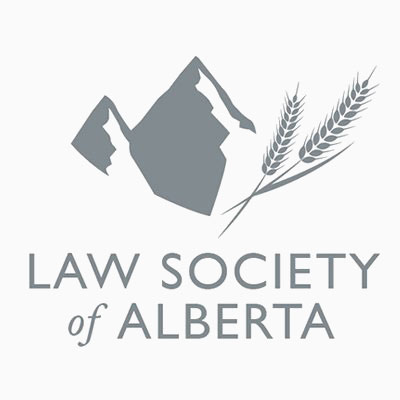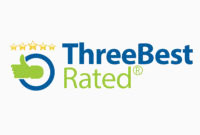How to Start a Business in British Columbia

A skilled Vancouver legal team guides you through the process
It’s common for business owners to be involved in many types of transactions, including commercial property agreements. If your company is involved in buying and selling commercial real estate in Vancouver, it’s in your best interests to consult with a real estate attorney.
At Castle Law LLP, our legal team is experienced in helping Vancouver business owners with the development, purchase, lease, and sale of commercial properties and land throughout B.C.
We can help your business-related real estate endeavors in the following ways:
- Offer legal advice and assistance
- Prepare contracts and other legal documents
- Help you identify real estate opportunities
Choosing a business structure
If you’re looking to start your own business, an attorney can ensure you choose the right business structure. In B.C., the three common business structures are as follows:
- Sole proprietorship — Under a sole proprietorship, there is no difference between you and your business. Although a sole proprietorship is simple and informal, you are liable for debts and damages incurred by your business.
- General partnership — A general partnership is similar to a sole proprietorship except instead of one owner, there are two or more partners. Members may be either general or limited.
- Corporation — A corporation, on the other hand, is an entity separate from the shareholders. The corporation model offers liability protection from company debt as well as other safeguards.
The business structure you choose depends on the type of business you are conducting. After reviewing your business goals, we can provide you with trusted advice on which structure is best suited for your company.
Developing a business plan
A business plan is a strategic roadmap for starting, operating, and growing a business. Unfortunately, many budding entrepreneurs draft a quick plan simply to secure financing. The truth is that your business plan isn’t just a document to show banks and investors — it’s the blueprint for your company’s success.
A sound business plan can help you identify potential weaknesses, opportunities and risks, as well as help you make confident decisions about your enterprise before you invest yourself financially or legally.
If you’re new to business planning, it’s a good idea to consult with an attorney. Our lawyers have considerable experience helping Vancouver business owners and entrepreneurs draft comprehensive and effective business plans for restaurants, hotels, retail establishments, and other businesses in B.C.
Securing financing for your B.C. business
To launch a successful business, you must have capital to cover start-up and operating expenses for at least the first 90 days. If you’re unable to secure enough funding from family, friends, loans or lines of credit, you can turn to outside sources for capital.
For information regarding private, venture, or government sources of financing, you can visit the following sites:
Also, you may be able to secure financing for your small business through:
If you are a rural B.C. resident, visit your local Community Futures British Columbia office for information about securing financing for your business.
Registering your business in B.C.
You can register your business quickly and easily with the Province of British Columbia online using the OneStop Business Registration Service, assuming your company is a general partnership or sole proprietorship
- Be sure to have your MasterCard, American Express, or VISA credit card ready in order to complete and pay for the transaction.
- You can also pay over-the-counter to register at OneStop locations such as Service BC Centres.
- You must file an Incorporation Application with BC Registry Services if you wish to incorporate. For detailed information on the application process, visit the registry’s website.
- Use the Corporate Online website to apply online.
- Visit Corporations Canada for information about applying for federal incorporation
Register for provincial sales tax
Unless a specific exemption applies, you must register for provincial sales tax (PST). PST is a retail sales tax on taxable goods or services that are acquired, brought, or purchased, into B.C.
You can visit the Ministry of Finance website for more information about PST and how to register.
You may also be required to charge a Municipal and Regional District Tax MRDT on the purchase price if you offer accommodations in specific areas of B.C. Over 50 municipalities in B.C. presently collect the MRDT. For more information about the MRDT, see the PST on Accommodation Bulletin.
Register for goods and services
You might have to register for goods and services tax (GST) if you sell or provide goods and services in Canada and your yearly international GST taxable sales are more than $30,000.
You can register online with the Canada Revenue Agency by visiting the OneStop Business Registry.
Complete federal, provincial, and local registrations
Depending on your business, you may need to complete other federal, provincial, or local registrations.
According to the official website of the Government of British Columbia, here are instances where further registration may be required:
- If you plan to hire employees – or have established your new business as a corporation – you will need to register with WorkSafeBC and pay WorkSafeBC insurance premiums.
- This will ensure you and your workers are covered in case of work-related injury or disease. If you are self-employed, you may also want to apply for WorkSafeBC’s Personal Optional Protection.
- If you are hiring employees and you are paying salary, wages, bonuses, vacation pay or tips to your employees – or providing a benefit to your employees such as boarding or lodging – you will need to register with the Canada Revenue Agency (CRA) for a payroll deductions account. This account will enable you to make the required Income Tax, Canada Pension Plan (CPP) and Employment Insurance (EI) payments. For more about payroll deduction accounts, call 1.800.959.5525 or go to the CRA’s website.
- If your business is incorporated, or you are a non-resident corporation operating in Canada, you will need to register for a Corporate Income Tax account with the Canada Revenue Agency.
- If you are going to import or export goods, you will need to register with the Canada Border Services Agency (CBSA). You can register your business with the CBSA through the OneStop Business Registry. For more information about importing and exporting, go to the CBSA’s website.
- If you have a restaurant and will be serving food, as the primary focus of your business, as opposed to liquor, you can apply for a restaurant liquor licence through the OneStop Business Registry.
- For more information about a restaurant liquor licence, go to the Liquor and Cannabis Regulation Branch’s website.
- If you need to change your business address through the OneStop Business Address Change Service, or plan to access other government e-services regularly, you will need a business BCeID. You can apply for a business BCeID through the OneStop Business Registry. A BCeID is an online service that makes it possible for you to use one login ID.
Identify any permit and licensing requirements
A great tool to help simplify the permit and licensing process is BizPaL. This free, online program generates a customized list of permits and licenses needed to start or run a business from all levels of government.
BizPal can help entrepreneurs reduce the time spent looking for licenses and permits from seven hours to twenty minutes, making the entire process straightforward and easy to navigate.
Contact Castle Law LLP for experienced guidance starting a business in B.C.
Castle Law LLP, can walk you through the steps involved in launching a new business in Vancouver. No matter if you are looking to create a sole proprietorship, partnership, or corporation, we can provide you with sound advice at every turn. To speak with one of our skilled attorneys about the launching, purchase, or sale of businesses in B.C., call or contact us online today.

